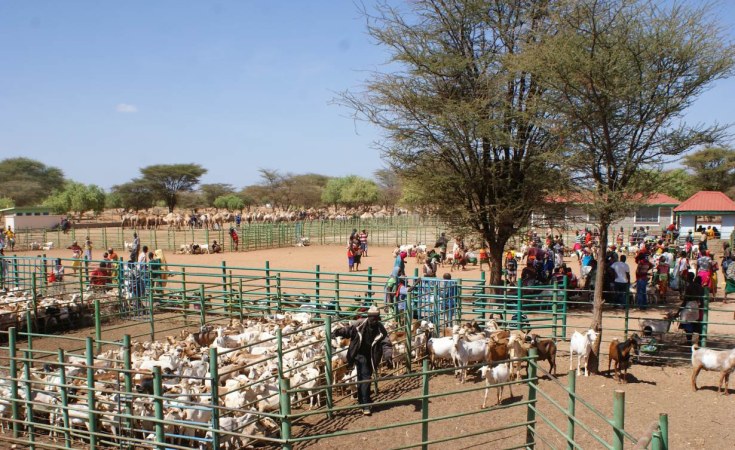Nairobi, Kenya — Kenyan security forces have launched an operation to clear bandits from its northern Rift Valley Region and recover illegal firearms. Critics have voiced concern that the operation, led by army-backed police, could lead to abuses.
Kenyan police, backed up by the military, are conducting an operation in the Rift Valley Region to root out bandits who are attacking communities and security forces and stealing people's livestock.
President William Ruto issued the order after three police officers were killed and eight others injured in an ambush in Kainuk, Turkana County.
Bandits have attacked communities in the country's northern region for decades, with stolen livestock blamed for most of the conflict.
Kenya's police chief, Japhet Koome, urged communities to stop attacking each other after visiting Turkana County Tuesday.
"People of this region have no option. They must learn to coexist. This habit of one community attacking another one will not be allowed to continue," Koome said. "We have the capacity and the will."
Ahmed Mohamed, the head of the Center for Security and Strategic Studies, says the bandits are interested in stealing animals.
"They cannot face any formidable force whether it's the police or military," Mohamed said. "Right now, they are gone, gone where? They are in towns and they will not stress you. You will be alone there for a while, you will be around, you will look for weapons, you will force people but they are not there. They are in town, back to their normal activities."
The government has given the bandits three days to surrender their weapons.
Last week, suspected bandits sprayed bullets into a vehicle carrying passengers, killing three people, including a student, in Turkana County.
Drought, according to Pokot South MP David Pkosing, is to blame for the current tensions and conflict between his community and the Turkana tribe.
"There is no order of grazing or drinking water and therefore the Pokot can push themselves to the river and maybe this river is on the side in terms of the administration of Turkana and Turkanas feel they are intimidated, or they think they are coming to their own land and vice-versa. And that's why there are a lot of conflicts. The competition for grass is now very high along that area," said Pkosing.
The conflict over pastures and water for the animals has heightened tensions in the area and halted other civilian and government activities.
Kenya is one of the countries in the region that is currently affected by the drought. Drought has affected 23 counties, including Baringo, Laikipia, Samburu, West Pokot, and Turkana.
Mohammed says the government will need to provide more resources and development in the affected region to stop animal theft.
"Those communities have lost a lot of animals. They have gone down in terms of numbers," Mohamed said. "Therefore, when they see others who are doing well, they will definitely go for them. Drought and climate change has had an impact. That is why we are saying as part of future plans, the government must think about development, think of life beyond livestock and all that other means will be used to help people sustain their lives."
Pkosing fears the security operation may bring more problems for his people than good.
"Out of 16 divisions in West Pokot, three are in distress, so sometimes when you unleash an operation, then they can make everybody a criminal... The past is that it criminalizes society," said Pkosing. "That's my fear. There have been incidences of rape in the past, and there are incidences of hunger, and roadblocks. A few months ago, there were roadblocks in Tiaty and 16 schools were closed and people almost died."
The operation will also include the recovery of stolen livestock and patrolling major roads to ensure the free movement of people and goods.


